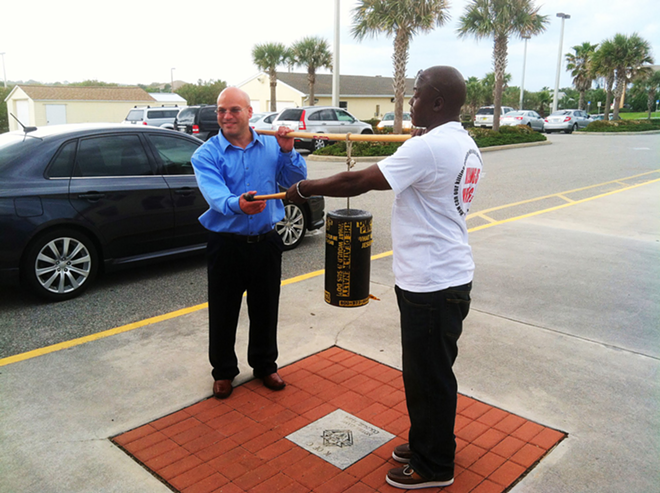
For weeks, Seth Penalver had been desperate to get an audience with Rick Scott, if just for a few moments. While lawmakers and lobbyists had also been vying to get his attention as he made his final decisions on bills passed in the just completed legislative session, Penalver was sure that if he could get 10 minutes with Scott, he could convince him to veto a measure that could lead the state to kill an innocent man.
If that sounds hyperbolic, Penalver doesn’t really care. He says that if the Timely Justice Act had been law a few years ago, he might not be alive today. Penalver had been imprisoned for 18 years when a Broward County jury found him not guilty last December in a triple homicide that occurred in 1994.
The bill, sponsored by Fort Walton Beach House Republican Matt Gaetz, contains a number of reforms to the death penalty process that capital punishment foes applaud. But the bill’s centerpiece is a provision that would speed up the execution of those on death row, something that critics contend is the last thing this state needs to approve.
But a canned response from a staffer last week dismissed any audience with the governor.
“Governor Scott is sorry his schedule does not permit him the opportunity to meet with you personally to discuss your opinions about legislation,” wrote Warren Davis from the Office of Citizen Services. “The Executive Office of the Governor follows all bills as they move through the legislative process. Please be assured, Governor Scott will consider your comments and those of other concerned citizens.”
“To me, that’s saying, ‘I don’t care about anyone’s life that could be innocent that’s on death row, man or woman,’ so I mean, it’s hurtful,” Penalver told CL by phone last week. “All I wanted was 10 minutes and I would have been able to show him where the State Attorney’s office of Broward County and the Miramar Police Department withheld evidence that proves my innocence. And had this law been in effect at the time of me being sentenced to death, I probably wouldn’t be talking to you today, you know?”
After the Broward jury found him not guilty in the murders of Casimir “Butch Casey” Sucharski, Sharon Ander and Marie Rogers, Penalver became the 24th exonerated death row prisoner in Florida. The state leads the nation in such exonerations, many of which were the result of new DNA evidence. Others were prompted by confessions, recanted testimony, incompetent counsel or other previously uncovered information.
Upon hearing the forewoman read the first “Not Guilty” verdict in the courtroom, Penalver’s attorney, Hilliard Moldof, buried his head in his hands and began to sob quietly. After the second “not guilty” verdict was read, Penalver, sitting to his left, began openly weeping. After all the verdicts were read, he arose from his chair, turned and kneeled, bowing his head into the seat of his chair as if in prayer.
His first trial had ended in a hung jury. He and his co-defendant, Pablo Ibar, were tried again separately in 2000. Both men were found guilty and sentenced to death. But in 2006 the Supreme Court overturned Penalver’s conviction on appeal and granted him a new trial. According to the South Florida Sun-Sentinel, the main reason was that “the video was so poor the justices couldn’t tell if Penalver was the killer who wore a hat and sunglasses.” New evidence was also brought forward that an investigator arranged for a Crimestoppers reward to go to an informant in the case.
Looking back five months later after his release, Penalver insists he’s not bitter.
“I mean, you’ve got two choices,” he said after a long day of working at an auto-detailing shop in Fort Lauderdale. “You can enjoy the rest of life that you have, or you can be mad, miserable, upset. … you just gotta let it go.”
Penalver was on death row for 13 years, which happens to be the average duration of all death row stays in the Sunshine State. Matt Gaetz and other supporters say passage of the Timely Justice Act would cut the time after a death row conviction roughly in half, to about seven years.
During debate on the bill on the floor of the Florida House in April, Gaetz came up with this money quote about his legislation: “Only God can judge. But we sure can set up the meeting.” He has said that the long delays begin with the Supreme Court, where all death sentences are appealed. (A spokesman for Gaetz told CL he was unavailable for comment.)
Tampa area Democrat Jamie Grant was a co-sponsor in the House. He said on the floor during debate, “We’re not speeding up the death penalty. We’re just slowing down fraud. We’re just simply saying you can’t abuse rules of civil procedure in the appellate process.”

